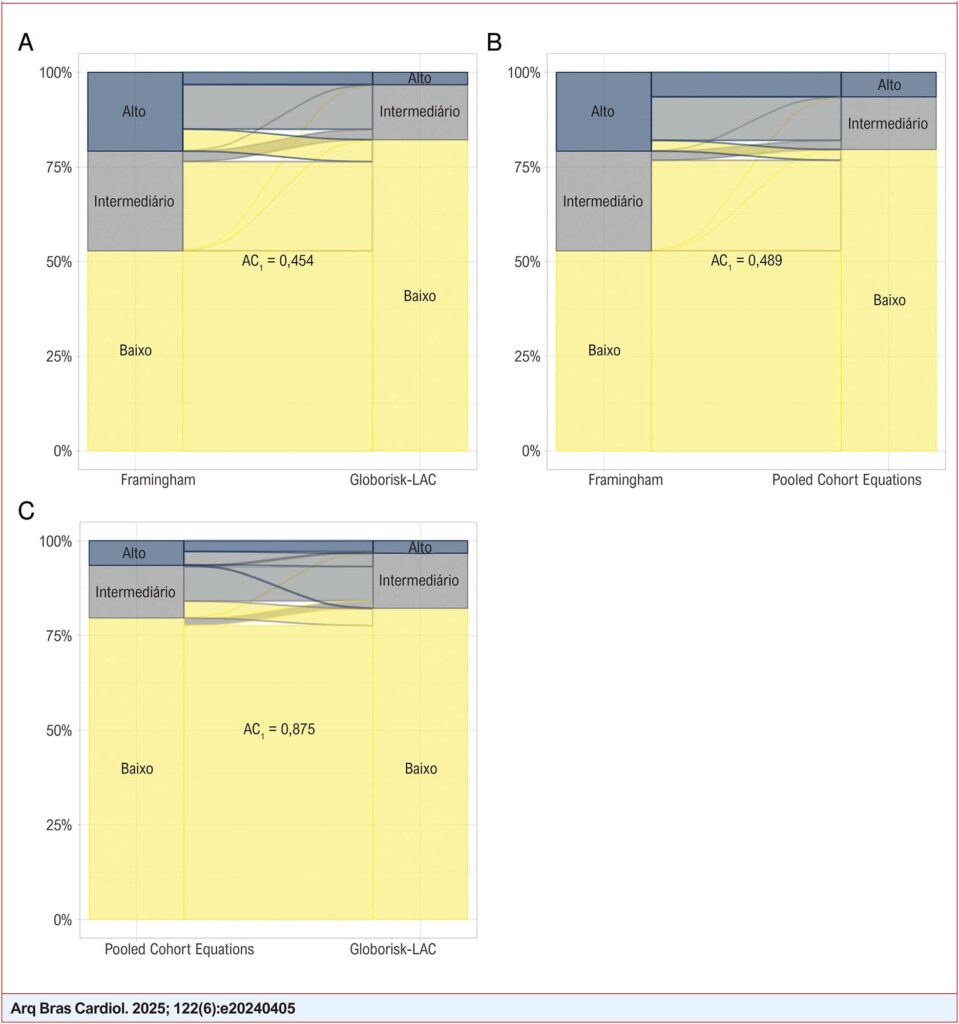Arq. Bras. Cardiol. 2025; 122(6): e20240405
Agreement between Framingham, Pooled Cohort Equations, and Globorisk-LAC in the Estimation of Cardiovascular Risk in Brazil, 2013
Abstract
Background
The Framingham risk score and Pooled Cohort Equations (PCE) have never been recalibrated for the Brazilian population. In contrast, the Globorisk-LAC score was recently derived using a methodology analogous to the PCE and has been recalibrated for Latin American countries.
Objectives
To describe the agreement between the Framingham, PCE, and Globorisk-LAC scores in estimating the 10-year cardiovascular risk in the Brazilian population.
Methods
This cross-sectional study used the three scores to estimate cardiovascular risk in participants aged 40 to 74 years without a history of cardiovascular disease based on data from the 2013 National Health Survey (PNS). The agreement was estimated as (i) the percentage of participants in which the risk estimated by one score was between 0.80 and 1.25 times the risk estimated by another score and (ii) based on the Gwet’s agreement coefficient (AC1) according to risk categories (low, intermediate, and high).
Results
A total of 4,416 participants were included from 8,952 participants from the PNS with a laboratory component. The median (interquartile range) of the estimated 10-year cardiovascular risk was 9.2% (5.1 to 17.8) according to the Framingham, 3.6% (1.7 to 8.2) according to the PCE, and 4.7% (2.8 to 8.1) according to the Globorisk-LAC. The risk estimated using the Framingham agreed with the Globorisk-LAC and PCE in 6.4% and 1.8% of the cases, respectively, whereas the PCE and Globorisk-LAC agreed in 34.7% of the cases. When considering the risk stratification, the respective AC1 values were 0.454, 0.489, and 0.874.
Conclusions
The three cardiovascular risk scores showed low levels of agreement with each other. The reasons for this disagreement suggests that Globorisk-LAC is a strong candidate to replace the Framingham in the Brazilian guidelines for dyslipidemia.
Keywords: Brazil; Heart Disease Risk Factors; Risk Assessment
645

